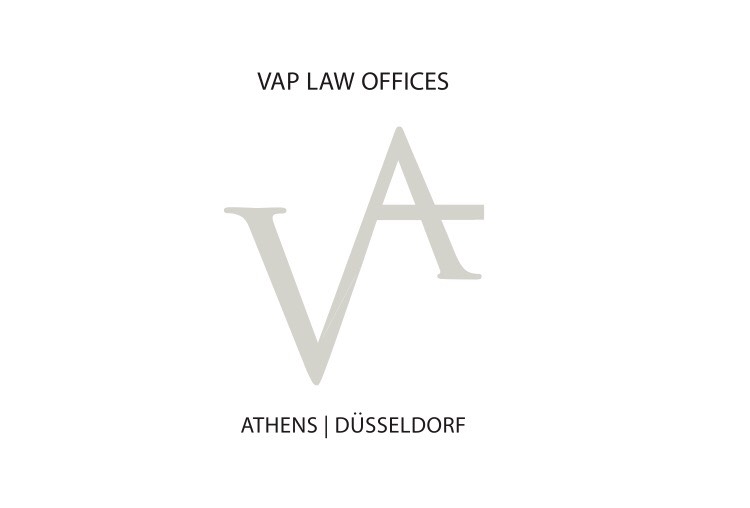

Since 2010, the Global Law Experts annual awards have been celebrating excellence, innovation and performance across the legal communities from around the world.
posted 3 years ago
Talking point nowadays in Greece is the Hague Convention on the Civil Aspects of International Child Abduction, also known as the Hague Abduction Convention, that was concluded on 25 October 1980 and entered into force between the signatories on 1 December 1983.
The objects of the Hague Abduction Convention are to secure the prompt return of children wrongfully removed to or retained in any Contracting State and to ensure that rights of custody and of access under the law of one Contracting State are effectively respected in the other Contracting States.
The Hague Abduction Convention provides that the Contracting States shall take all appropriate measures to secure within their territories the implementation of the objects of the Convention. For this purpose, the Central Authorities of the Contracting Parties shall co-operate with each other (i.e. to exchange, where desirable, information relating to the social background of the child; to provide information of a general character as to the law of their State in connection with the application of the Convention) and shall use the most expeditious procedures available, either if the judicial or the administrative authority has been appointed to this matter.
Let’ s take a look on the most important prerequisites in order to the Hague Convention to be applied:
Crucial matter: Is the Central Authority obligated to order the return of the child forthwith?
According to article 12, where a child has been wrongfully removed or retained in terms of article 3 and, at the date of the commencement of the proceedings before the judicial or administrative authority of the Contracting State where the child is, a period of less than one year has elapsed from the date of the wrongful removal or retention, the authority concerned shall order the return of the child forthwith.
The judicial or administrative authority, even where the proceedings have been commenced after the expiration of the period of one year referred to in the preceding paragraph, shall also order the return of the child, unless it is demonstrated that the child is now settled in its new environment.
Where the judicial or administrative authority in the requested State has reason to believe that the child has been taken to another State, it may stay the proceedings or dismiss the application for the return of the child.
On the top of that, according to article 11, the judicial or administrative authorities of Contracting States shall act expeditiously in proceedings for the return of children. If the judicial or administrative authority concerned has not reached a decision within six weeks from the date of commencement of the proceedings, the applicant or the Central Authority of the requested State, on its own initiative or if asked by the Central Authority of the requesting State, shall have the right to request a statement of the reasons for the delay.
However, according to article 13, the Hague Abduction Convention provides that notwithstanding the provisions of the preceding article, the judicial or administrative authority of the requested State is not bound to order the return of the child if the person, institution, or other body which opposes its return establishes that:
a) the person, institution or other body having the care of the person of the child was not actually exercising the custody rights at the time of removal or retention, or had consented to or subsequently acquiesced in the removal or retention; or
b) there is a grave risk that his or her return would expose the child to physical or psychological harm or otherwise place the child in an intolerable situation.
The judicial or administrative authority may also refuse to order the return of the child if it finds that the child objects to being returned and has attained an age and degree of maturity at which it is appropriate to take account of its views. The judicial and administrative authorities shall take into account the information relating to the social background of the child provided by the Central Authority or other competent authority of the child’s habitual residence.
We, at VAPLAW OFFICES, having gained over the past years extensive experience and profound subject knowledge on Hague Abduction Convention, are here to assist you. Contact us.
Stay informed with the latest legal developments at Global Law Experts
Author


No results available
posted 22 minutes ago
posted 19 hours ago
posted 23 hours ago
posted 23 hours ago
No results available
Find the right Legal Expert for your business
Global Law Experts is dedicated to providing exceptional legal services to clients around the world. With a vast network of highly skilled and experienced lawyers, we are committed to delivering innovative and tailored solutions to meet the diverse needs of our clients in various jurisdictions.

When your international business faces financial distress, quick action is key! 🔑 Negotiating with creditors, restructuring debt, and understanding insolvency laws can help regain stability. Global Law Experts is here to guide you through your options.
🌍Explore the details on our website.
🔗Link in bio
#GlobalLawExperts #CommercialLaw #BusinessLaw #LegalAdvice #BusinessGrowth #LegalTips #BusinessStrategy #LegalCompliance #Law #LegalKnowledge #LegalAwareness #Law101 #LegalEducation #IntellectualProperty

Running a business is hard enough — lawsuits shouldn’t make it harder. 🚫 Protect your business with the right legal strategies and expert tools from Global Law Experts. Let’s secure your future together! 💼
🌍Explore the details on our website.
➡️www.globallawexperts.com
#GlobalLawExperts #CommercialLaw #BusinessLaw #LegalAdvice #BusinessGrowth #LegalTips #BusinessStrategy #LegalCompliance #Law #LegalKnowledge #LegalAwareness #Law101 #LegalEducation #IntellectualProperty #Infringed #Ecommerce #LegalBranding

Using NRIC numbers as passwords or identity proof? That era is done. Strengthen your security with multi-factor authentication and biometrics—because your clients' trust depends on it.
#SingaporeLaw #DataPrivacy #CyberSecurity #PDPA #NRIC #MFA #StrongAuthentication #LegalCompliance #ClientTrust

Swiss law protects secured lenders—with precision. From real estate to IP and bank accounts, every asset counts—just as long as it’s defined, documented, and delivered.
#SwissLaw #SecurityInterest #Collateral #InternationalLending #SwissFinance #LegalCompliance #GlobalBusiness #AssetSecurity

Gold trading in Saudi Arabia isn’t just a business—it’s a lab test, a permit, and a legal tightrope. Want to succeed? Start with compliance, hallmarking, and permits—or risk losing it all.
#GoldTrading #SaudiLaw #PreciousMetals #BusinessSetup #LegalCompliance #GlobalBusiness #SaudiArabia #TradeRigour

Second citizenship isn’t permanent—especially if you break the rules. Know the risks and how to safeguard your status: be transparent, stay lawful, and honour all citizenship requirements.
#SecondCitizenship #CitizenshipRisks #DualNationality #Compliance #GlobalMobility #LegalAdvice #ImmigrationLaw

Send welcome message